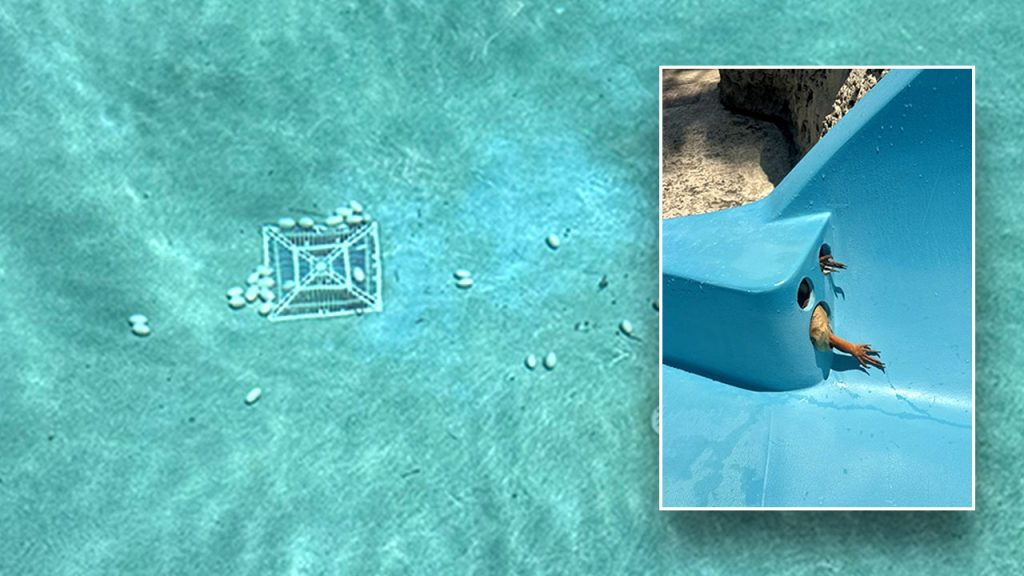In South Florida, iguanas are causing problems for humans in unexpected ways. A female iguana was found laying eggs on a water slide at a Miami resort, leading to the removal of over two dozen eggs. Michael Ronquillo, of Humane Iguana Control, revealed that the resort contacted them after discovering the iguana in the water slide jet, where it was likely attempting to lay its eggs. The presence of iguanas in unusual locations, such as pools, under artificial turf, and in cars, has become increasingly common in the region.
Breeding season for iguanas in South Florida typically occurs between February and March, with many reptiles choosing to lay their eggs in human-inhabited areas. The removal of 30 eggs from the Miami resort’s swimming pool highlights the potential for infestation, as female iguanas are capable of laying up to 70 eggs annually. This has led to an increase in iguana invasions in recent years, with some even causing damage to personal property. The risk of encountering iguanas in the wild poses significant dangers due to their sharp nails, teeth, and the ability of their tail whips to reach speeds of 30 mph.
Michael Ronquillo warns against approaching iguanas due to the potential for bodily harm and health risks, including the transmission of ticks, mites, and salmonella. His recommendation is to contact appropriate authorities if an iguana is spotted in the wild and to refrain from attempting to interact with the invasive reptile. The increasing presence of iguanas in human environments underscores the need for professional removal services, as these animals can quickly reproduce and lead to serious infestations if left unchecked. Given the potential for harm and the challenges posed by these invasive reptiles, it is crucial to prioritize safety and caution when dealing with iguanas in South Florida.
In response to the growing issue of iguana invasions, organizations like Humane Iguana Control are working to manage the population and prevent further breeding in human-populated areas. The removal of eggs from the Miami resort’s swimming pool is just one example of the efforts being made to address the problem. By educating the public about the risks associated with iguana encounters and providing professional removal services, these organizations aim to protect both humans and wildlife from the negative impacts of invasive species.
The presence of iguanas laying eggs in public places like swimming pools highlights the need for proactive measures to control their population and prevent infestations. The sight of an iguana in an unusual location should serve as a reminder of the potential risks associated with these invasive reptiles, including property damage and health hazards. By taking preventative action and reporting sightings to authorities, individuals can help mitigate the impact of iguanas on the environment and reduce the likelihood of harmful encounters with these animals.
In conclusion, the iguana population in South Florida poses a unique challenge for residents and visitors, as these invasive reptiles continue to disrupt everyday life in the region. The efforts of organizations like Humane Iguana Control are crucial in addressing the issue and ensuring the safety of both humans and wildlife. By raising awareness about the risks associated with iguana encounters and implementing effective removal strategies, it is possible to manage the population and prevent further breeding in human-inhabited areas. Ultimately, a combination of education, prevention, and professional intervention is essential in addressing the growing problem of iguana invasions in South Florida.


